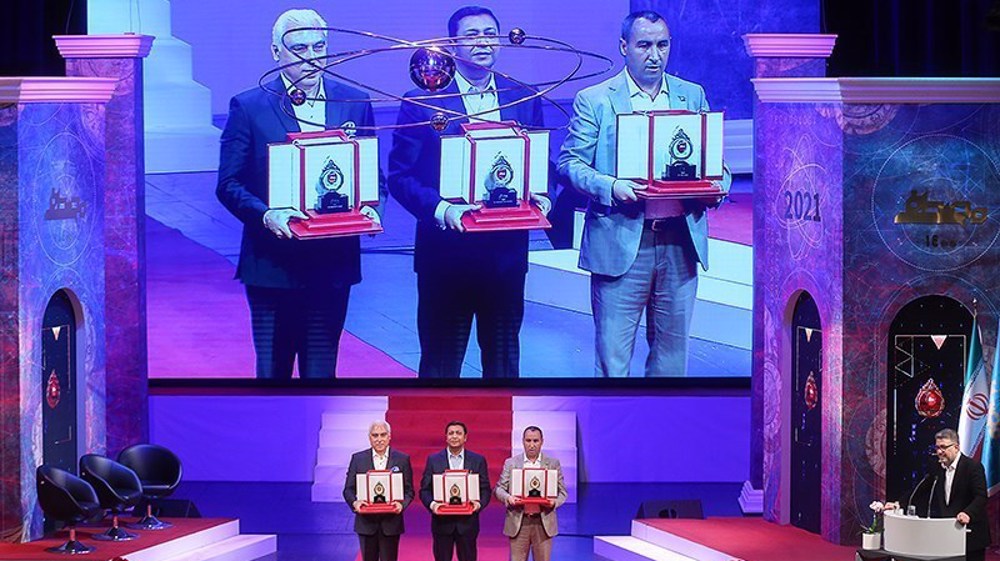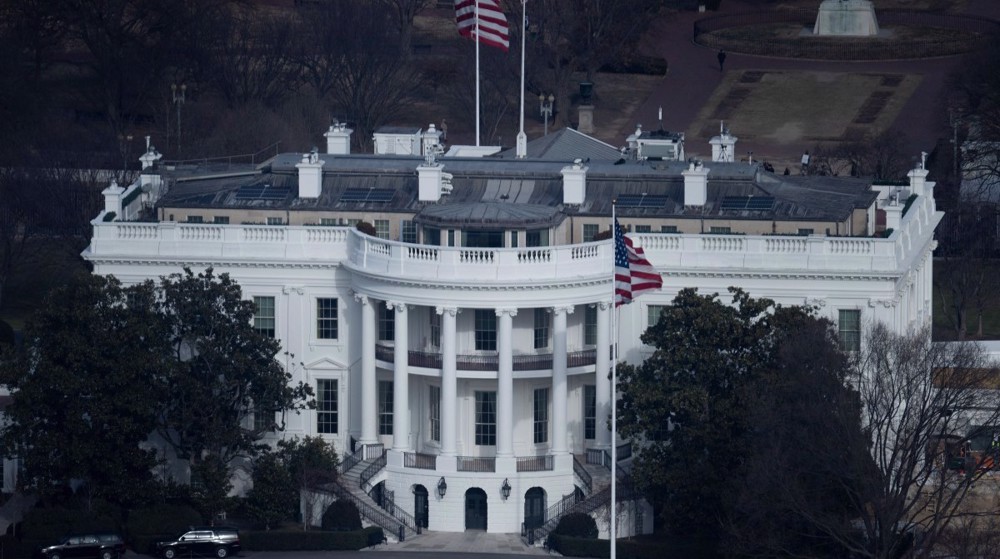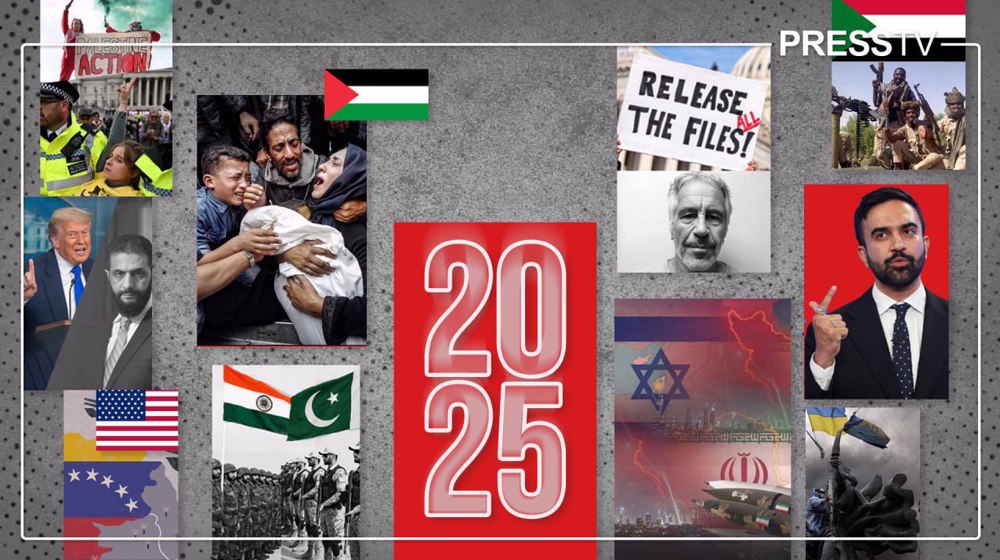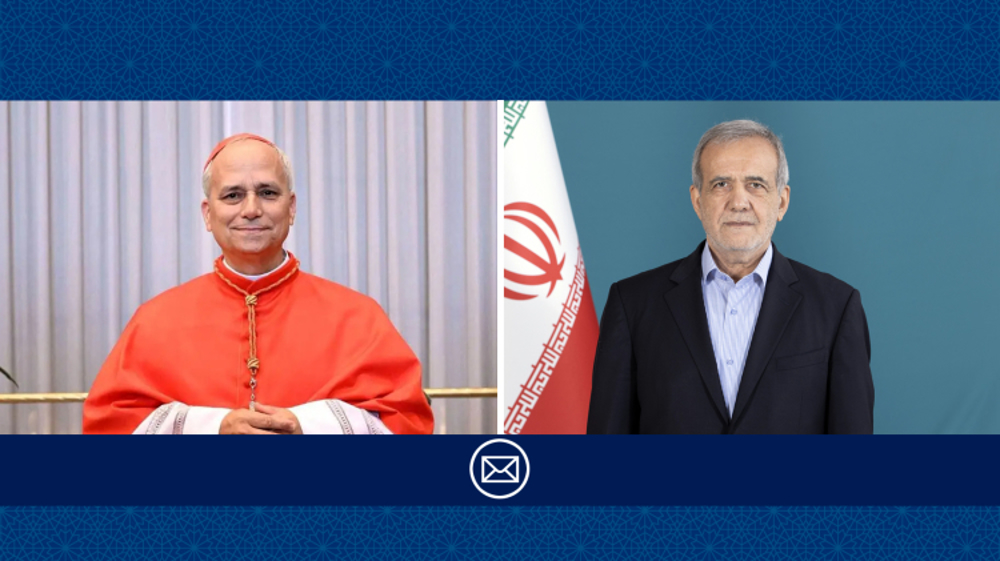Five Muslim scientists scoop prestigious Mustafa Prize
The five laureates of the prestigious biennial Mustafa Prize have received their prizes during a ceremony in Tehran, a week after they were picked out as winners for their scientific excellence in their respective fields.
The winners were announced on October 12 in a press conference held in the headquarters of the Mustafa Science and Technology Foundation.
They received their prizes in a ceremony on Thursday.
Cumrun Vafa from Iran, M. Zahid Hasan from Bangladesh, Mohamed El. Sayegh from Lebanon, Yahya Tayalati from Morocco, and Muhammad Iqbal Choudhary from Pakistan were picked out as the recipients of the prize.

Each of the five won $500,000. They were selected from more than 500 entrants.
Cumrun Vafa, the Hollis professor of mathematics and natural philosophy at Harvard University, received the Mustafa Prize 2021 for developing the F-theory, which is a branch of string theory.
He donated his prize to the Iranian scientific community in general and the country's Foundation of Basic Sciences in particular.
Speaking at the ceremony, he said the Islamic community is not a stranger to science, as it experienced the golden era of science several centuries ago.
“We had prominent scientists in Iran at the time, and this shows science can be very close to our society, even though it is now a bit aloof from the Islamic society,” he added.

M. Zahid Hasan, the Eugene Higgins professor of physics at Princeton University, was awarded for his research on Weyl fermionic semimetals.
Mohamed El. Sayegh, a professor of medicine and immunology at the American University of Beirut, earned the prestigious prize for his work “Novel Therapies to Improve Renal and Cardiac Allograft Outcomes.”
Yahya Tayalati, a professor of physics at Mohammed V University, scooped the prize for his special contribution to the “Observation of the Light by Light Scattering and the Search for Magnetic Monopoles."
Muhammad Iqbal Choudhary, a professor emeritus at the University of Karachi, was awarded for the discovery of fascinating molecules with therapeutic applications.
First launched in 2015, the Mustafa Prize honors scientific breakthroughs within the Muslim world.
It is awarded to top researchers and scientists from the Organization of Islamic Cooperation (OIC) member states in four categories of information and communication science and technology, life and medical science and technology, nanoscience and nanotechnology, and all areas of science and technology.
This year, 515 works were submitted to the Iran-based secretariat.
The scientific event is held biennially during the Islamic Unity Week, which celebrates the birthday of Prophet Mohammad (Peace upon Him).
Speaking at the Thursday ceremony, Sorena Sattari, the chairman of the Mostafa Prize Policy-Making Council, said he was honored to meet with top figures of the Islamic world’s scientific community.
“Under the current situation, while Islamic countries are facing great social challenges, it is the responsibility of all the great thinkers and scientists of the Islamic world to act as flag-bearers of joint cultural initiatives,” Sattari said.
Back in 2019, Ugur Sahin, the CEO of BioNTech, received the award for his seminal work on individualized cancer immunotherapies, in particular for the development and clinical testing of mRNA-based vaccines that are tailored to each patient's mutation profile.
Sahin’s BioNTech later developed the Pfizer–BioNTech COVID-19 vaccine. To develop the vaccine, Sahin and his team used the same study that earned him the Mustafa Prize: vaccines based on messenger-RNA or mRNA.
Shedding of American, Iranian blood on ‘Israel firsters’: Iran FM
Iran condemns IAEA inaction as US-Israeli aggression targets nuclear facilities
Iran FM says to issue protest to Kuwait over US aircraft downing
IRIB chief says Tehran compound hit in Israeli-US aggression, broadcasts continue
US-allied fuel tanker attacked by Iran still burning in Strait of Hormuz: IRGC
Attacks on hospitals, schools ‘strike at life itself’: Pezeshkian
Iran’s attacks on US bases ‘legitimate’ response to source of aggression: Araghchi
IRGC targets US intelligence centers, military depots in 11th wave of attacks












 This makes it easy to access the Press TV website
This makes it easy to access the Press TV website